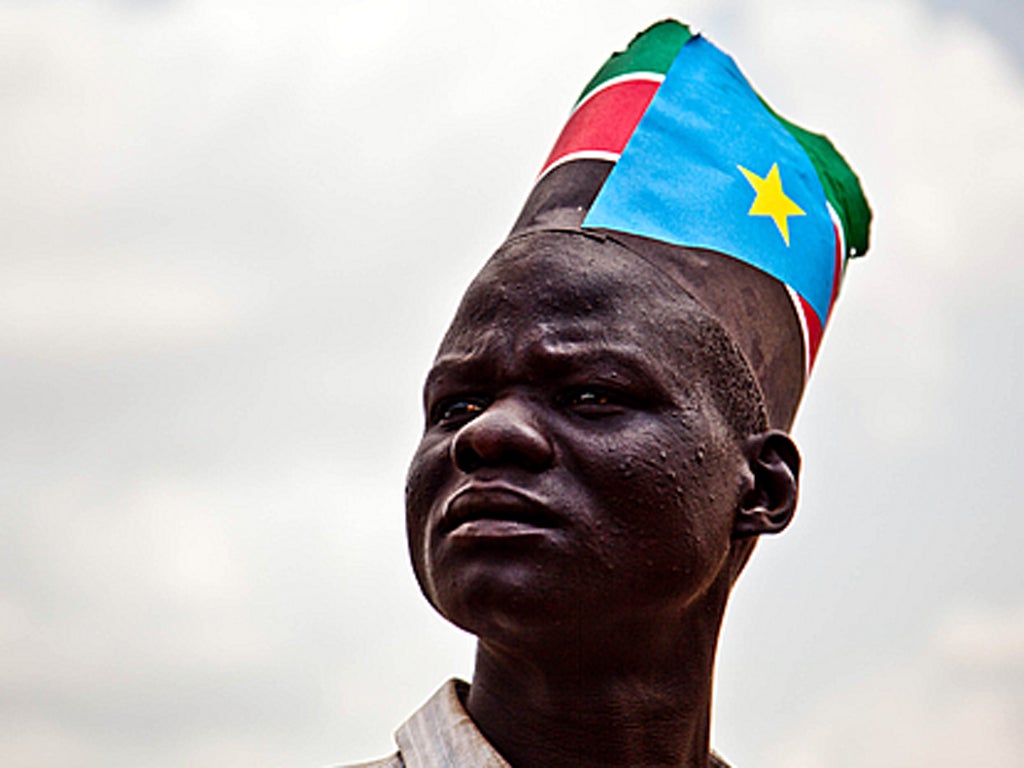Shakespeare as spoken in South Sudan to the Globe Theatre
Ros Wynne-Jones hears the incredible tale behind the staging of 'Cymbeline' in the Juba Arabic language

As part of the Cultural Olympiad, London's Globe Theatre plays host this month to 37 Shakespeare plays in 37 languages. Each has its own compelling story to tell. But of all the players from war-torn, drowned and oppressed countries, few can have made such an extraordinary journey as the South Sudan Theatre Company (SSTC), which presents Cymbeline tonight and tomorrow.
Born in the refugee camps where displaced people fled a 40-year civil war that claimed almost two million lives, the SSTC is a potent symbol of new nationhood. Last July, South Sudan finally achieved independence from the north of Sudan, making it the youngest country to take part in the "Globe to Globe" festival.
"It is hard to describe how important this moment is for us," says the company's co-director Joseph Abuk, the man who took on the translation of the play from Shakespearean English to Juba Arabic, a language without a dictionary. "It is a moment when we celebrate our freedom."
For more than two decades, it was impossible to read Shakespeare in South Sudan because the government in the north banned books written in English. Often the stories were passed on through word of mouth, but there were also contraband copies of Shakespeare plays in circulation.
"When we put the call out for Shakespeare productions from different countries, the proposal we got from SSTC was the single most compelling and irresistible," says Tom Bird, the Globe to Globe director. "It was six months before independence, and was written by the man who would go on to become the country's first Culture Minister. He wrote that he used to lie in the Bush under the stars reading Shakespeare plays to avoid thinking about the killing that would happen the next day. No other proposal was like it."
In the hands of the SSTC, the play's conflict between ancient Britain and imperialist Rome takes on a new resonance as King Cymbeline's refusal to pay tribute becomes South Sudan's fight for freedom. Abuk says: "When we read this man Shakespeare, we think he was writing about us. We can see all our problems and stories are in the play."
In a new country whose people speak many different tribal languages, SSTC chose Juba Arabic as a neutral lingua franca. It also appealed to Abuk and his colleagues to bring Shakespeare to England in a language that was at one time banned by the imperial British. "Juba Arabic grew up because the African people in the south were not allowed by the British to speak Arabic," he explains. Translating the text was a painful process, Abuk says. "There were many lines that nearly defeated me."
The players have been rehearsing 3,500 miles from the South Bank, and it will be the first time they have flown in an aeroplane. "It will be very tough for our actors," Abuk says. "They need to breathe the air of London, acclimatise to the cold weather and become less nervous."
In many ways, Bird points out, the SSTC is close to the spirit of the Globe. "They are used to performing outside in daylight," he explains. "Some of the companies coming from grand European theatres will have more of a shock."
Almost a year after independence, war rages on in the disputed territories along the border of Sudan and South Sudan, and the challenges of poverty and a deep lack of development are manifold. As a symbol of hope then, Cymbeline is timely, reminding the new nation of its ambition to rise above its past.
Subscribe to Independent Premium to bookmark this article
Want to bookmark your favourite articles and stories to read or reference later? Start your Independent Premium subscription today.

Join our commenting forum
Join thought-provoking conversations, follow other Independent readers and see their replies